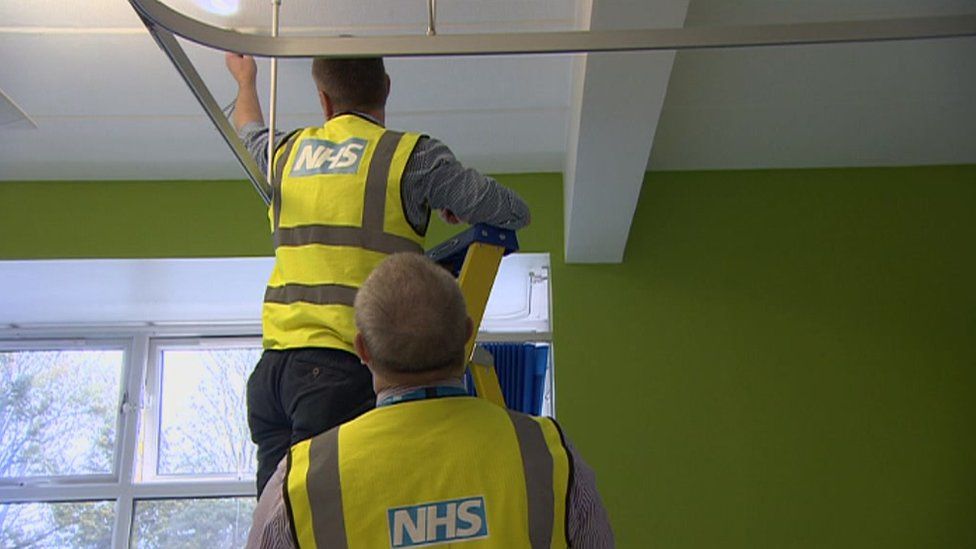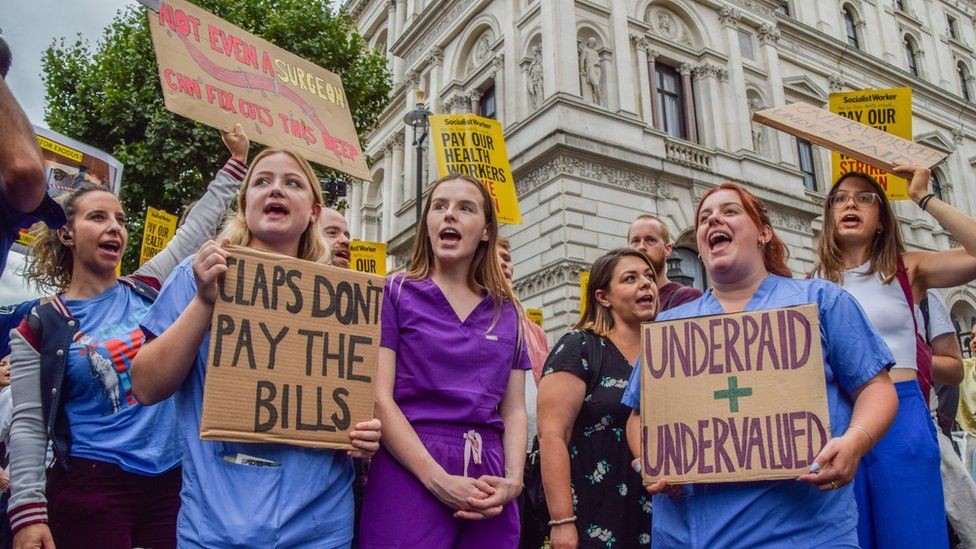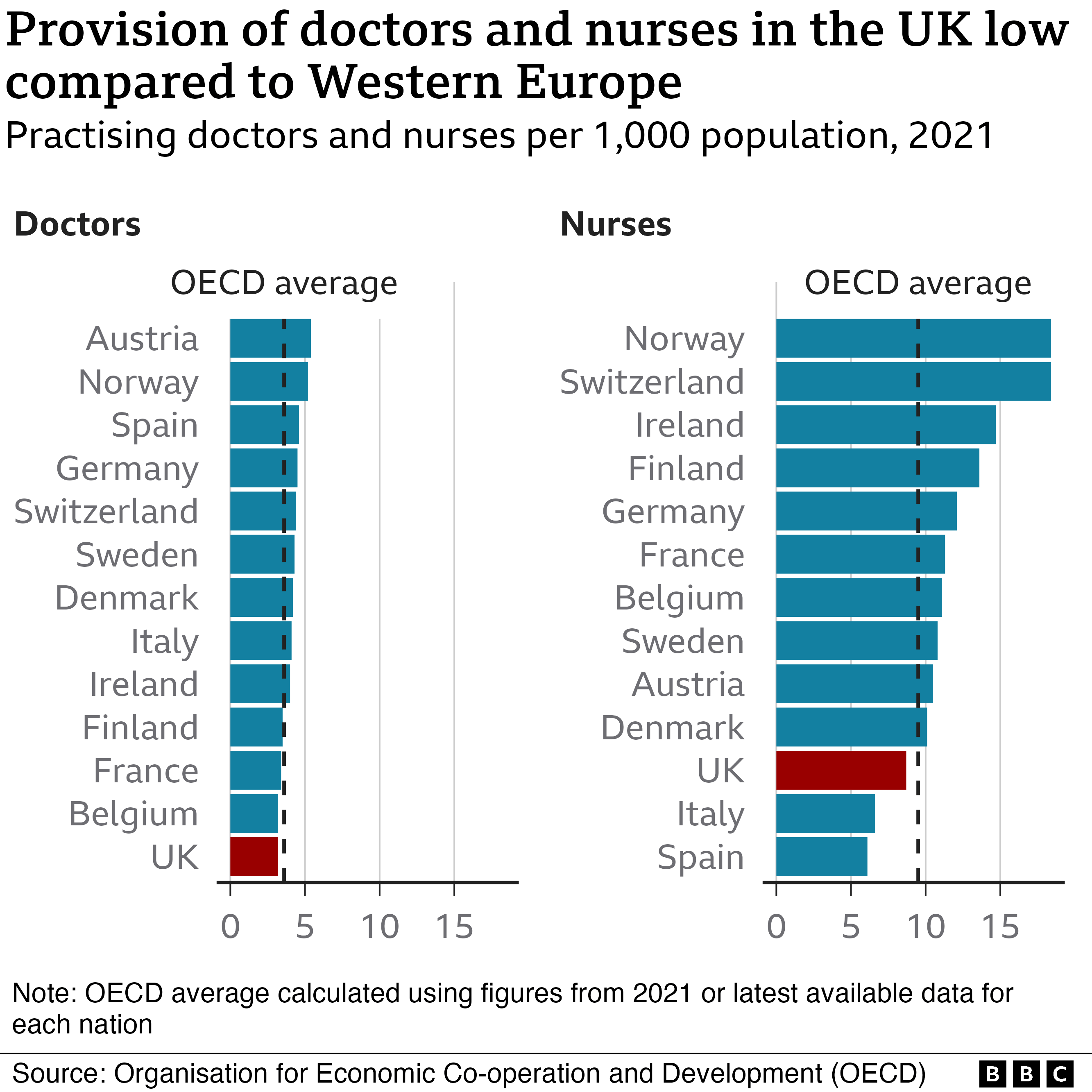
Rishi Sunak has announced a plan to increase the number of people working for the NHS in England, which he says will put the service on a secure footing for the long-term. But despite the prime minister's pledge there are still many questions.
Will it work?
That answer is yes for recruitment, though with a caveat.
The plan is funded for the first five years but for 10 years after that there is an assumption that future governments will find the money to keep up with the required growth in training places.
It is hard to believe a new administration would dilute NHS workforce growth and the training of thousands more doctors and nurses.
But, never say never when it comes to public finances.
Expanding the number of clinical staff to the extent which is envisaged in the plan will eventually have a positive impact for patients - but retention will be a bigger ask.
The plan's policies to improve morale and hang on to staff look a little vague. Recruitment will not achieve much if there is a continued exodus at the same rate as now.
Is it the right approach?
Recruit and retain have long been held up as the required twin-track approach for the NHS.
Health think tanks and charities were queueing up to welcome the plan as it had adopted the policies called for by most experts.
Then again the enthusiasm must in part have been relief that at long last there was an NHS workforce plan after nothing comparable in the previous two decades.
Modelling of future patient demand seems reasonable and health think tanks were invited to kick the tyres of the numbers.

Productivity assumptions were included. Some of the medical Royal Colleges have noted the plan is ambitious and they want to see more detail.
The idea of medical apprenticeships is radical with staff in other NHS jobs training to be doctors.
But, the precise workings of this scheme will need time to work out.
Why is pay not part of the plan?
Pay is certainly the elephant in the room.
Most large organisations drawing up a workforce plan would have a section on appropriate remuneration to attract and motivate the best staff.
That is one thing NHS England can't do with its strategy.

NHS pay is the preserve of the government and it is ministers who decide. Most of the NHS pay disputes have been settled but the doctors' campaign is far from over with further strikes planned.
Health unions have long argued that the best way to hold on to staff is to raise wages at a time of acute cost of living pressures.
Senior management have had to stand on the side-lines of the argument and cope with the consequences of walkouts.
Is it going to make a difference?
In the short-term - no, when it comes to raising the number of doctors, nurses and other health staff.
It takes several years to train clinical professionals and the expansion of new places at medical schools and universities won't begin until the autumn of 2024.
Implementation may be slowed if there are not enough experienced doctors and nurses to set aside time to run the training.

Retention initiatives aimed at reducing the number of NHS staff quitting might make a bit of a difference over the next year or so.
But, patients currently frustrated at not getting a GP appointment or are on a long waiting list for an operation probably won't notice.
Is now not the time for a broader strategy?
Planning the training of tens of thousands of health staff right through till beyond 2030 is admirable.
There has been nothing comparable in recent years with only sporadic time-limited initiatives.
But, what will the rest of the NHS look line by then? Will the service have kept up with the increasing burden of sickness linked to an ageing population?

Will the public be willing to keep funding the NHS through taxation? Might payment for some services have been introduced? How much difference will technology and AI make?
There is no long-term plan for investment in buildings and IT - in other words the hospitals and clinics where the new staff will work and the computers they will use.
Perhaps the publication of a multi-year workforce plan will spur politicians to come up with broader strategies for health funding and reform over a decade or more.
But don't hold your breath.
https://news.google.com/rss/articles/CBMiKmh0dHBzOi8vd3d3LmJiYy5jby51ay9uZXdzL2hlYWx0aC02NjA3MDQ2N9IBLmh0dHBzOi8vd3d3LmJiYy5jby51ay9uZXdzL2hlYWx0aC02NjA3MDQ2Ny5hbXA?oc=5
2023-06-30 21:13:06Z
2176224296
Tidak ada komentar:
Posting Komentar